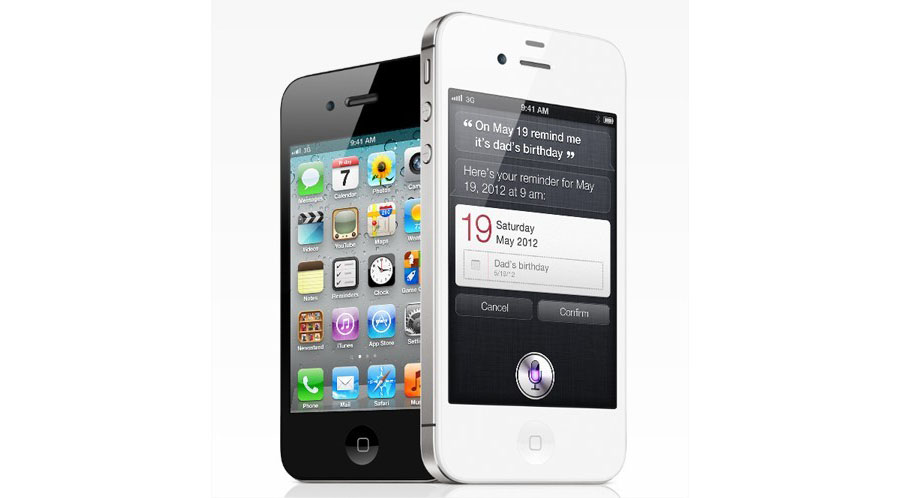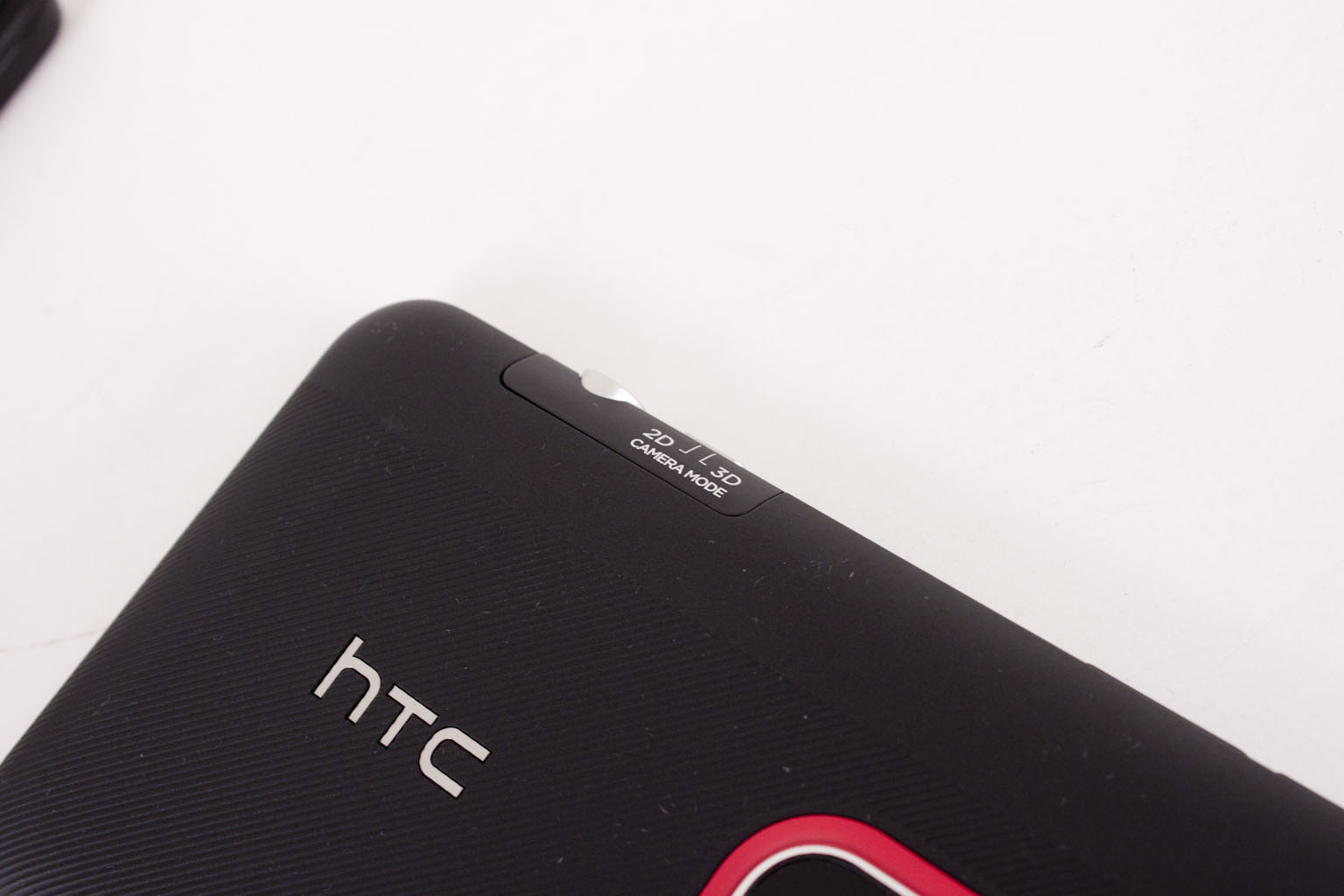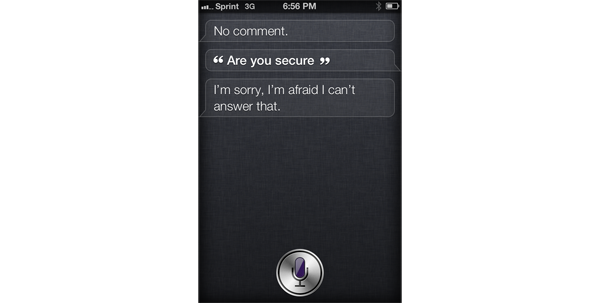Editorials
 In the weeks since the iPhone 4S announcement and then launch we have read all kinds of articles and heard all kinds of stories. It has been somewhat difficult to sort through much of what is out there and come to a conclusion general or not. The iPhone 4S launched to a less than underwhelmed crowd. Normally the press gets all lathered up when a new Apple product launches, but this time things were not the same. Even with this lukewarm reception the consumers line up to buy them. The after seeing the reception from the consumers the press worked overtime to make up for its stance on the iPhone 4S. They came out with articles about Siri, The new UI, the Speed of the new Dual Core A5 and more. Still there are issues with the iPhone and due to the much wider audience and customer base they are coming out faster than ever.
In the weeks since the iPhone 4S announcement and then launch we have read all kinds of articles and heard all kinds of stories. It has been somewhat difficult to sort through much of what is out there and come to a conclusion general or not. The iPhone 4S launched to a less than underwhelmed crowd. Normally the press gets all lathered up when a new Apple product launches, but this time things were not the same. Even with this lukewarm reception the consumers line up to buy them. The after seeing the reception from the consumers the press worked overtime to make up for its stance on the iPhone 4S. They came out with articles about Siri, The new UI, the Speed of the new Dual Core A5 and more. Still there are issues with the iPhone and due to the much wider audience and customer base they are coming out faster than ever.
This is what we know so far. On launch day the iPhone 4S hit the market and within days the troubles began…
The first up is poor 3G speeds when on the Sprint network. Both Apple and Sprint have acknowledged the issue with Sprint being the first one to come out about the issue a promise a fix. We are fairly certain that Apple was not pleased with this, but are also just as sure that Sprint did not want to lose any new customers to that 30 money back policy they have. So the issue was out on the table and now a solution needs to be found. Comparing even an older Android Phone to an iPhone on the Sprint 3G network shows a remarkable difference. Apple wants to say it is iOS5, but the issue is not present in every phone so this one may actually be related to a bad lot of 3G radios. I guess we will find out once Sprint and Apple release their findings.
On top of (and possibly related to) the 3G speed issue are the reports of exceptionally poor battery life. These reports are possibly exaggerated, but some are claiming as few as 4 hours of life. One thing that we have found in common with all of the reports of poor battery life are reports of overheating, signal scanning (when the device continues to try and find a signal even if it has one) and, as listed above, poor 3G and WiFi speeds.
Now, at this point it is important to note that Apple has made some small overtures to the effect that this is an issue with iOS5 and have released iOS 5.0.1 to developers for testing. Here is my problem with this, the symptoms of this all point to a problem with the Radio on the phone. It is either defective and cannot complete the connection to the cellular or WiFi networks it is trying to talk to, or there is a MAJOR flaw in the baseband coding in iOS5 that is causing the system to continually drop the connection instead of keeping it alive.
Personally our feeling is that this is a bad lot of 3G/WiFi radios that managed to get through Q/C (quality control). It might be possible to “fix” this with software, but in the end the device will still have the flaw and its lifespan will probably be shorter than it should be. We are waiting to see if the new iOS update will do anything for this issue and will let you know what we find.
Discuss this in our Forum
- Details
- By Sean Kalinich
- Hits: 3083
 Asus is known for taking a concept and running with it. At least in the last few years they have been that way. When the idea of the “netbook” entered the market the thought was a cheap, light device for content consumption that could compete with some of the smaller products from Apple like the iBook. Many companies jumped in on this market bandwagon, but only one really went the whole distance (meaning that most companies stayed in APAC or the EU). Asus decided to develop the EEE line up and then pushed it to the global market.
Asus is known for taking a concept and running with it. At least in the last few years they have been that way. When the idea of the “netbook” entered the market the thought was a cheap, light device for content consumption that could compete with some of the smaller products from Apple like the iBook. Many companies jumped in on this market bandwagon, but only one really went the whole distance (meaning that most companies stayed in APAC or the EU). Asus decided to develop the EEE line up and then pushed it to the global market.
After this daring move (and in less than three years) Asus went from an unknown on the mobile market to one of the highest rated companies for customer satisfaction (based on return rates and consumer complaints). Now we are seeing something very similar in the tablet market. There is no doubt that Apple owns the lion’s share right now but Asus has put out not just one, but three compelling competitors for the market to feast on. At the very top and for the Windows fan is the EEE Slate EP121 with a dual Core i5 ultra mobile CPU, 4GB of RAM and up to a 64GB SSD for storage. Beneath this we find the Transformer which is a 10.1 tablet with a keyboard/dock and battery. The last in the group is the slider, another tablet and keyboard combination but this one has the keyboard under the display and it… you guessed it slides out for use.
Now you might be wondering why I am giving you a rundown of Asus’ tablet offerings. Well the reason is simple; you cannot understand where a company is going until you know where they have been. Let’s take a look at what we have and what Asus has said publicly to gauge where they are headed in the tablet market for 2012.
For the Windows fans we have the current EEE Slate EP121. This is a great product, but there are many that look at its size and weight as an obstacle. In my experience with it there are times when it is just too big. Added to this is the complete lack of any usable accessories for the product. There are no cases for it, no stands, nothing. It makes using it troublesome for the average user.
Fortunately Asus is working on this issue. We have heard that they are planning at least two Windows 8 tablets and if the information we have is correct one of them will be x86-64 while the other is some form of ARM CPU (most likely Tegra). This will put the Windows user’s minds at ease.
For the Android market we know that the Transformer Prime will already hit the market in just 8 days. This device will be thinner, lighter and much more powerful with a quad-core Tegra under the hood. For the rest of the lineup we find that Asus has plans for two “Hero” products in Q1 2012 that will run Google’s Ice Cream Sandwich. One of these (so the rumor goes) could be a 3D display model (or maybe both will be). nVidia is big on 3D and there have been some outstanding work done to bring the glassless 3D Panels up in quality and down in price. I would not be surprised to see a 3D enabled Quad Core Tegra under the hood of one of these two “Hero” products next year.
What we are seeing is the same thought process that Asus has used again and again with their products. They actually do some good market research and then they use the tried and tested shotgun approach. They launch multiple products and see which ones take off. In the case of the tablet; all three have but for different reasons (because different markets want different things). This is actually a great win for Asus as they can now work to perfect these products like they have done with the EEE PC line up which is now moving into another generation.
This is what Asus does though, we have heard about it since we started our relationship with Asus back in the late 90’s. They were not quite where they are now, but the one thing they talked about consistently and asked about all the time was “what can we do to improve this”. Now they have a much larger market to ask that question of and they also can watch what their competitors do to gain an insight into how to build on their product portfolio. It has been interesting to watch them at work and to also see how their products impact the market (we will talk more about that later).
We will be keeping an eye on the tablet market as well as watching the development of Windows 8 to see how the chips fall and if Asus will become the leader in the “non-Apple” world of the tablet both x86 and ARM.
Discuss in our Forum
- Details
- By Sean Kalinich
- Hits: 3448
 I know that lot of people question that Apple is concerned about Samsung when the Korean Giant posts a down quarter despite increased phone sales. Well If you take a closer look at those reports you might notice that Samsung’s legal bills are getting quite high (think AMD here) due to the number of legal spats they are getting into with Apple (and a few other companies) over patents.
I know that lot of people question that Apple is concerned about Samsung when the Korean Giant posts a down quarter despite increased phone sales. Well If you take a closer look at those reports you might notice that Samsung’s legal bills are getting quite high (think AMD here) due to the number of legal spats they are getting into with Apple (and a few other companies) over patents.
So that that we understand where Samsung is and what is going on there then we are sure you will want to know who Apple’s next target is. In another time we might have considered Google as a likely target, but there is still too much between the companies to allow open warfare just yet. No, the next target on Apple’s list will be HTC. Not all that long ago HTC was almost unknown in the US and its handsets were bulky and unimaginative. In the last few years, HTC has reinvented themselves and has released more than a few show stoppers. From the EVO 3D (the original EVO was something of a pig) through the Amaze 4G and right up to the Sensation. People are taking notice of HTC and buying their hardware. On top of the hardware is the popular SenseUI. This stylish skin for Android gives life to the basic ROM that Google ships out and to many people (myself included) it is a much cleaner UI than even Apple’s cherished iPhone.
It is all of this that enabled HTC to pull off a record setting $4.54 Billion (in US Dollars) quarter which is up 68% from the same quarter in 2010. Their net profit for the quarter was $625 Million (US Dollars). HTC also announced an increase in units shipped. For Q3 2011 they shipped 13.2 million units which is an increase of 93% over last same quarter 2010. So if you want to get an idea of who might be next on Apple’s hit list, just look at the figures above and then factor in HTC relatively weak patent portfolio and low cash reserves. It is an equation that we are sure has the Apple legal team salivating while looking for that one opening… maybe it will be slide to lock this time.
Discuss in our Forum
- Details
- By Sean Kalinich
- Hits: 2652
 There is a report tonight that Siri’s Co-Founder, Dag Kittlaus is leaving Apple. According to the report he is leaving to spend more time with his family and also to possibly found another company. This sounds like a great idea after all of the hard work he put in at Apple getting Siri ready for the iPhone 4S launch; which is the thing that bothers me. If you built a company (or co-built) a company and then you just walk away from it after a major launch? That really makes no sense. Of course there could have been a clause in his contract after Apple bought Siri for an undisclosed but rumored $121 Million that stated he had to leave after the initial launch, but I really doubt that.
There is a report tonight that Siri’s Co-Founder, Dag Kittlaus is leaving Apple. According to the report he is leaving to spend more time with his family and also to possibly found another company. This sounds like a great idea after all of the hard work he put in at Apple getting Siri ready for the iPhone 4S launch; which is the thing that bothers me. If you built a company (or co-built) a company and then you just walk away from it after a major launch? That really makes no sense. Of course there could have been a clause in his contract after Apple bought Siri for an undisclosed but rumored $121 Million that stated he had to leave after the initial launch, but I really doubt that.
Instead I think there is a little more to this. One thing that stands out is the constant claims from people who originally were involved with Siri that there is almost nothing this API can’t do. It also is not a power crazy API; you do not need a ton of memory or CPU power to run this thing. So here is what we are thinking (and this is only speculation, but it seems to fit some of the facts). We know that Apple bought up Siri and at one point had plans to release this for product other than the iPhone 4S. At some time, during the pre-production phase of the iPhone 4S it was decided that there was not enough to get people to buy the phone. Apple was sure there would be Sprint purchases, but without a major feature there was not much to motivate people to pick up the new iPhone. Someone decided to remove the capability to run Siri on anything other than the iPhone 4S. With that decision and no future plans for Siri until sometime in 2013 Kittlaus decides to leave.
Apple’s culture of xenophobia and control was probably too much for Kittlaus to deal with. However, we are fairly certain that Apple made sure they had a clause that prevents Kittlaus from immediately going back into business. The probability of a non-compete or delay compete clause accounts for the vacation time he plans to take (not to mention he probably does want some time off). We have a feeling we will see Mr Kittlaus in the future, possibly within a year of today with a new company making something that will turn out to be what Siri could have been… maybe this time it will end up with Android or Microsoft.
Source; AllThingsD
Discuss in our Forum
- Details
- By Sean Kalinich
- Hits: 3723
 There is only one constant in the universe and that is change. Although things may seem static and unmoving they are not. This chaotic nature extends from the largest black hole to the tiniest particle. Everything is in constant motion and everything is working against everything else. Even our societies exhibit this behavior; as one event happens the people in it change to adapt to it. Just look at the Internet. This giant amorphous mass (represented by a cloud) has more cultures and sub-cultures than you can find on a map of the world.
There is only one constant in the universe and that is change. Although things may seem static and unmoving they are not. This chaotic nature extends from the largest black hole to the tiniest particle. Everything is in constant motion and everything is working against everything else. Even our societies exhibit this behavior; as one event happens the people in it change to adapt to it. Just look at the Internet. This giant amorphous mass (represented by a cloud) has more cultures and sub-cultures than you can find on a map of the world.
Unfortunately just like the many cultures that exist in the physical world, the online cultures are very misunderstood. Too many corporations and groups seek to control it or nail it down. Thankfully, and also unfortunately doing this is about as easy as holding water in your hand (or attempting to heard cats).
The most obvious example of this is online file sharing. Here we have watched as countless laws, rules and restrictions have been put in place. Companies have published the numbers or alleged losses to file sharing (while posting record quarters) and yet it does not seem to stop. Even the crazy (and borderline unethical) lawsuits that are files in the US court system has not been a deterrent. All that has happened is this culture has adapted and changed their tactics and method. Where before communications between groups were open now many use encrypted VPN (Virtual Private Network) connections. Sites that catalog the available shares are using SSL certificates (often self-signed to avoid being tracked back) to keep the unwanted out. Memberships are becoming invitation only to keep the eyes of the MPAA and RIAA out.
This is not to say that the stragglers won’t still get caught. There will always be the little fish that mess up and end up on the kitchen table, but the people that develop the content are extremely sophisticated and are becoming more and more difficult to find. The guys over at TorrentFreak liken this to viruses Vs. medication. Personally I like to think of this more in line with Prohibition and the costly (and widely ineffective) war on drugs in the US. During prohibition the US spent millions of dollars fighting a losing battle. No matter what they did they could not keep liquor out of the US. The more they tried the more sophisticated the people importing the liquor became. It only stopped when they re-legalized alcohol and taxed it.
There is a growing movement to do the same thing with some of the drugs that are being brought into the US (although there are still some that really need to be controlled). They say that History can be a great teacher for those that are willing to read it, but for some reason I think that too many people want to ignore the lessons available there. The media and software companies really need to take a look at the mobile market to see what can be done. Although there is still piracy at this level it is much less rampant. People are willing to pay the money to get the apps they want. The reason is that these apps are (for the most part) reasonably prices; unlike the hugely disproportionate prices seen in the PC, Console, and DVD/BRD world. If these companies could finally work out a fair pricing structure (meaning the CEOs and other execs would need to get paid a little less) and a good method for content delivery then you would finally see piracy decline. It will never go away as that is part of the Internet Culture, but the number of people taking that risk would drop off as it would not be seen as “worth it”.
It really is sad that the greed of a few people (this included the actors getting pair tens of millions for a single movie) is what fuels much of the file sharing and piracy out today. Maybe one day we will see a change here, but I have a feeling that the culture that runs the show will never allow that.
Source TorrentFreak
Discuss in our Forum
- Details
- By Sean Kalinich
- Hits: 2798
More Articles …
Page 80 of 89



